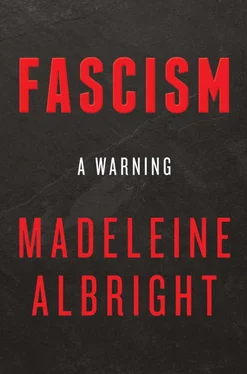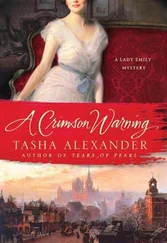When the Cold War ended, the Soviet bloc lost its ability to stifle the expression of nationalist attitudes. At the same time, many countries were given the chance to join groups from which they had been excluded. The combination brought some peoples closer together and tore others apart. In Central Europe and the Baltics, citizens of the newly liberated states looked eagerly to the West as they prepared to enter NATO and the European Union. In other parts of the world, the pent-up forces of sectarian anger took advantage of the thawing earth to crawl like poisonous snakes from their holes.
In 1993, I began serving as America’s permanent representative to a very busy UN, where diplomats confronted conflicts that had arisen almost overnight in Georgia, Armenia, Azerbaijan, Somalia, Angola, Liberia, Mozambique, Sudan, Haiti, Cambodia, Afghanistan, and Tajikistan. Until that time, the world body had focused on wars between states. Now we were often called on to respond to mayhem within states, the most horrific of which was the genocide perpetrated by Hutu militants in Rwanda. Yet another region of prolonged and vicious fighting was the Balkans.
Early in my tenure, I flew across the Atlantic and half of Europe to a garbage dump in the corner of a plowed field a few miles outside the Croatian city of Vukovar. As I looked around at the debris, not much was visible—just a few rusted refrigerators and scraps of farm equipment, surrounded by coils of razor wire. But in the ground below lay the bodies of more than two hundred Croat hospital patients—innocent men, women, and children who, some months earlier, had been rousted from their beds, taken outside, and murdered by their Serbian neighbors. I wanted to know the reason. Later that day, I met with local Serb leaders. They made no effort to deny that the mass killing had taken place; they just marveled at my concern. Didn’t I understand the influence of the past? Why, after so many years of jealousy and hate, should I expect anything to change?
SLOBODAN MILOŠEVIĆ WAS A YUGOSLAV BUSINESSMAN WHO MANEUVERED his way upward through the ranks of Communist officials following the death, in 1980, of the country’s longtime leader Tito. While establishing himself, Milošević adhered to the party line, favoring a Yugoslavia of “brotherhood and unity,” as the slogan had it, in which all groups were treated equally. His attitude hardened when, just prior to the end of the decade, he was elected president of Serbia. Though he continued to pay lip service to the ideal of a multinational Yugoslavia, he also cooked up bits of red meat to whet the appetites of Serb partisans:
We must secure unity in Serbia if we wish, as the largest and most populous republic, to dictate the course of future events…. If we must fight, then my God, we will fight and I hope they will not be so crazy as to fight against us. Because if we don’t know how to work well or to do business, at least we know how to fight well.
Like other nationalist orators, Milošević drew heavily on the literary, religious, and artistic traditions that had bound his people together through centuries of foreign domination. He exploited the anger born of past defeats at the hands of the Ottoman Turks and Nazis and called for vigilance against such imagined present-day foes as the CIA, Germany, and the Vatican. He took inspiration from a memorandum signed by two hundred members of the Serbian Academy of Arts and Sciences, describing Serbs as a repressed people and calling for the inclusion of them all within a single state.
When, in 1991 and 1992, Yugoslavia broke uneasily into five pieces, the dissolution was most wrenching in Bosnia-Herzegovina, which had a Muslim majority but also housed significant Serb and Croat communities. As part of the breakup, Milošević allowed Bosnian Serbs from the Yugoslav Army to return home with all their weapons, giving them the upper hand in what quickly became a grisly civil war.
Every party to the Bosnian bloodbath could be faulted for human rights violations, but the Serbs had the greater firepower and committed by far the most egregious crimes. As early as the summer of 1992, there were ninety-four Serb-run concentration camps in which, all told, tens of thousands of prisoners were beaten, starved, or raped. Even though Milošević, from his vantage point in Belgrade, didn’t personally direct these operations, he knew what was taking place—as did the whole world. He continued nevertheless to furnish financial and military support to the killers and rapists.
The Bosnian Muslims had no air force or munitions plants to attack, but the absence of strategic targets did nothing to slow the Serb assault; shells rained down on open-air markets, shops, cyclists, and children sledding or playing in the snow. Apartment buildings were gutted, with gaping holes where windows should have been. Serb marksmen turned the main boulevard in Sarajevo into what became known as “Sniper Alley.” In the countryside, the disruptive effects of the fighting made bad conditions even worse. Desperate for medicine and food, villagers depended on airdrops that often missed their targets and on convoys that rarely came. Many people grew hungry, some starved, babies died. Doctors were forced to operate without anesthetics, extracting bullets from bodies by candlelight. Half of Bosnia’s population was displaced; one out of twenty perished.
Years earlier, I had traveled through the region and was impressed by Yugoslavia’s reverence for its heritage and by the existence, often in a single town, of Roman Catholic and Orthodox churches and one or more mosques. Now the holy places were damaged and the Sarajevo National Library, with its collection of rare Ottoman-era books, had been shelled and burned.
The horror reached its apex in 1995, when, in the space of ten July days, troops commanded by General Ratko Mladić executed 7,800 Muslim men and boys in and around the town of Srebrenica and deposited their bodies in mass graves. After four years of dithering, the killings finally triggered a serious diplomatic effort by Western and UN officials to end the war. However, even while that process was under way, Bosnian Serbs attacked a Sarajevo food market, murdering thirty-seven civilians. Given their earlier crimes, the provocation was sufficient that two days later, more than five dozen NATO aircraft, flying from bases in Italy and the Adriatic, pounded Serb positions around Sarajevo. French and British artillery joined in. It was, to that time, the largest NATO combat operation in history.
The air strikes had a military impact, but the more telling effect was psychological. With NATO on watch, the Bosnian Serbs could no longer play the bully; their reign of terror was over. During the first week of September, the parties agreed to silence their guns and live side by side within a single state. The arrangement served as a basis for the Dayton Accords, initialed on November 21, 1995, ending the Bosnian War.
The Balkans crisis was inseparable from the history that preceded it. Muslim victims accused Bosnian Serbs of ethnic cleansing and genocide, the worst war crimes in Europe since the Fascist atrocities of World War II. Milošević pointed at the abuses committed by Croat nationalists, some of whom had taken Hitler’s side in that conflict. Observers around the world were reminded of photos from half a century earlier of malnourished prisoners—their skin pulled tight against their skeletons—languishing in concentration camps. Until NATO finally acted, the years of inept diplomacy made me think of Europe’s inglorious and unavailing attempt to appease Hitler prior to the invasion of Czechoslovakia. On one point only was there consensus. With the fighting finally over, and more than 100,000 killed, we should never again allow the Balkans to be riven by sectarian violence.
Читать дальше
Конец ознакомительного отрывка
Купить книгу












